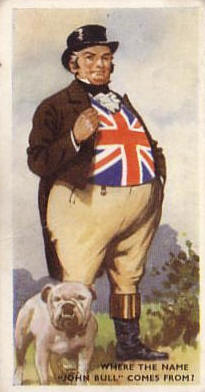- Every Tom, Dick and Harry means everybody, every ordinary person: If you tell Louisa, soon every Tom, Dick and Harry will know about it.
- Jack of all trades, master of none is a proverb used for people who are competent with many skills but are not especially good at any of them. As is usual with proverbs, the second part can be left out. There's a chap in the office who can do almost anything; he's a jack of all trades.
- All work and no play makes Jack a dull boy is a familiar proverb that means that if a person does not take some time off work, they can become boring. It was the phrase that Jack Nicholson kept typing in The Shining, a film based in the novel of the same name by Stephen King.

Image
- Johnny-come-lately means a newcomer, someone who has just joined a group. She may be a Johnny-come-lately in the office, but she´s doing really well. There's a song by Eagles in which this expression can be heard. You can find it at the end of this entry.
- Keep up with the Joneses means to try to be as good as the neighbours by getting what they have and matching their lifestyle: Her neighbour bought a new car and she went out and bought another; she's always trying to keep up with the Joneses.
- Rob Peter to pay Paul is to take or borrow money from someone in order to pay a debt to another person. If you take money from a credit card to pay off another, it's a case of robbing Peter to pay Paul. It won't take you anywhere.
- John Hancock is a person's signature. It refers to one of the signers of the Declaration of Independence of the USA. Put your John Hancock on the dotted line, please.
- A peeping Tom is a voyeur, a person who takes pleasure from secretly watching others. By way of example you can watch the video below, which is an excerpt from the legendary film "Back to the Future".
- To live / lead the life of Riley is to live a really good life with few problems. Stop complaining. You're living the life of Riley. The origin of this idiom is in an old Irish song called "Is that Mr. Riley?"
- (And) Bob's your uncle is used after explaining a simple set of instructions, meaning that it's very easy to do: Boil the pasta, drain it, put the sauce on top and Bob's your uncle!
- Take the Mickey (out of someone) is to make fun of someone. This expression, used mainly in Britain, comes from the Cockney Rhyming slang "Mickey Bliss", meaning "piss", because the orignal expression was take the piss out of someone. It is also equivalent to pull someone's leg, which is also used in America. Are you being serious or are you taking the Mickey out of me?
- The real McCoy is the genuine thing or person. This isn't an imitation. It's the real McCoy.
- We are even Steven is an expression used when someone has repaid a debt. It's clear that this name has been used because it rhymes with "even". Now that you have given me back the money I lent you, we are even Steven.
- John Doe or Jane Doe are names used for a man or a woman whose real name is unknown.
- John Bull is a character who represents the typical English man. He is usually pictured as a stocky figure wearing a waistcoat with the British flag on.
- Uncle Sam is the government of the United States and, by extension, the American people. The name is an expansion of the abbreviation U.S.
 |  |
Johnny-come-lately by Eagles. At the beginning of the video there's a grammar mistake. Can you spot it?
Jack of all trades by Bruce Springsteen
Exercises:
Finally, try to complete the idioms in this presentation:











